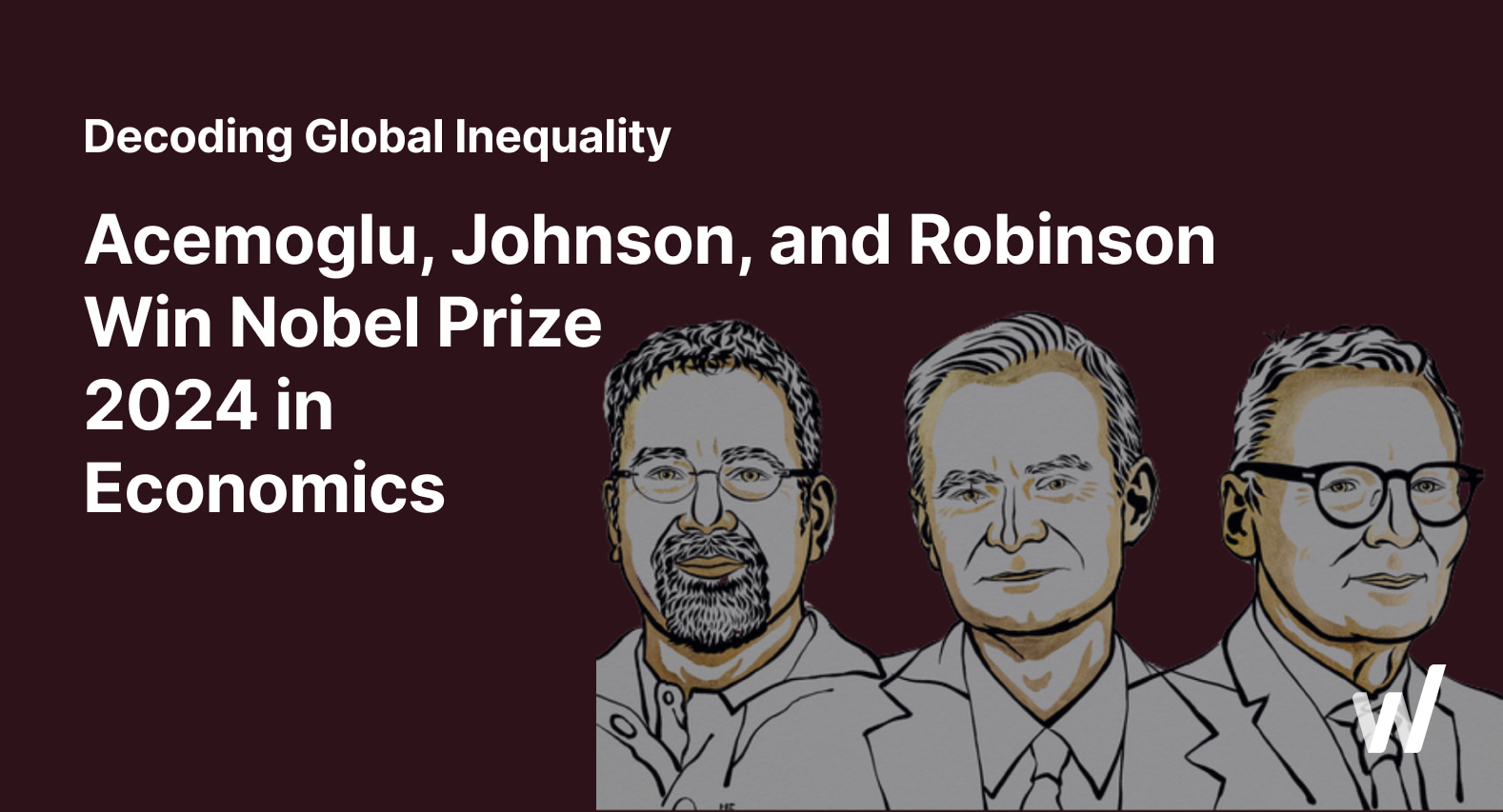2024 Nobel Prize in Economics: How Acemoglu, Johnson, and Robinson Decode Global Inequality
Acemoglu, Johnson & Robinson win 2024 Nobel for showing how inclusive institutions drive long-term prosperity & reduce inequality.

The Royal Swedish Academy of Sciences honours Daron Acemoglu, Simon Johnson, and James A. Robinson with the Sveriges Riksbank Prize in Economic Sciences in Memory of Alfred Nobel 2024 for their analysis of institutions' impact on economic performance. Their work shows the relationship between political and economic systems that result in today's immense globalization of inequalities and questions the possible means to develop sustainably.
The trio who won the 2024 Nobel Prize in Economics:
- Daron Acemoglu, born 1967 in Istanbul, Türkiye. PhD 1992 from London School of Economics and Political Science, UK. Professor at Massachusetts Institute of Technology, Cambridge, USA.
- Simon Johnson, born 1963 in Sheffield, UK. PhD 1989 from Massachusetts Institute of Technology, Cambridge, USA. Professor at Massachusetts Institute of Technology, Cambridge, USA.
- James A. Robinson, born 1960. PhD 1993 from Yale University, New Haven, CT, USA. Professor at University of Chicago, IL, USA.
How institutions drive prosperity - or poverty
A detailed analysis of the laureates' ideas is based on the concept of inclusive compared to extractive institutions. Central to the inclusive institution that supports participation, protects property rights and encourages innovation to promote growth. Extractive institutions focus power and economic opportunity among a few individuals and groups, resulting in rents, stagnation and increased vulnerability to inequality. They argued that whereas societies with inclusive institutions continue to experience favourable growth, those with extractive institutions experience adverse effects on their economies.
Colonialism and reversal of fortune
The reversal of fortune explains how colonialism dramatically shifted the fates of nations. They found that regions once prosperous, such as parts of South America, became impoverished after colonization, while previously less developed areas like the U.S. and Canada thrived. The key difference lay in the type of institutions established: extractive institutions in colonies focused on exploiting resources and labour, while settler colonies developed inclusive institutions that promoted long-term growth and wealth distribution.
“The richest 20% of the world’s countries are now around 30 times richer than the poorest 20%.”
Reforming institutions or growth
This research is not just academic; since it won the Nobel Prize, the results have implications for the direction of global development policy. To the laureates’ mind, for change to be sustainable and lead to the development of effective institutions that would support economic changes in the long run, institution-building should be the starting point. Property rights, education, and polity are the changes that create trusting relations between people.
The message for policymakers in developing nations is clear: liberating the economy from extractives can be achieved and will ensure a high-growth environment for many people. This research shows the way out for countries experiencing low growth and institutional circulation and provides evidence of how institutions shift societies.
Economic challenges and future directions
The awarding committee noted that combating global income disparity remains a significant challenge of the present era, so the fortunate recipients appreciate the significance of their discovery. Acemoglu, Johnson, and Robinson's ideas can be of immense value for learning what makes inequality endure and how to design a policy that overcomes the roots of economic imbalance. When inclusive institutions are put in place, favourable settings mean economic progress leads to fair distribution, hence cohesion.
Their work also provided evidence for our argument that when people stand to gain political rights through inclusive institutions, democracies are better for economic growth. This link between political liberties and economic prosperity is vital mainly because it reveals that those institutions people struggle to establish are meant to set up the people, not the elite.
Resources:
Subsribe to our weekly newsletter
Get our Sunday morning newsletter with exclusive deals, portfolio updates, and private market insights delivered straight to your inbox.



.jpg)
